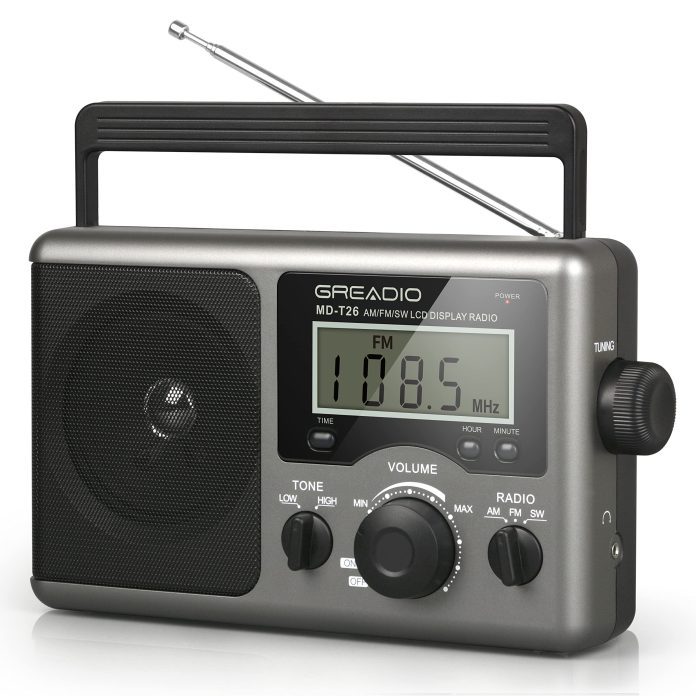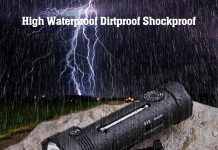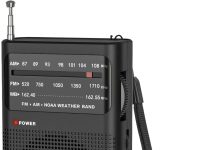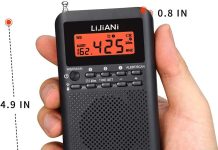In our pursuit of exploring alternative ways to stay informed about local emergencies, we stumbled upon an intriguing question: Can weather radios serve as an unexpected tool to monitor police scanner channels? Curiosity piqued, we embarked on a quest to uncover the truth. As we delved into the intricacies of weather radios and police scanner systems, we were met with surprising discoveries that might revolutionize the way we approach emergency communication. Join us as we unravel the secrets behind this unconventional synergy between weather radios and police scanner channels.
Review contents
Overview
Weather radios and police scanners are both communication devices used to receive broadcasts, but they serve different purposes. In this article, we will explore the similarities and differences between weather radios and police scanners, discuss the possibility of using weather radios to monitor police scanner channels, and weigh the advantages and disadvantages of this approach. We will also explore other alternatives for monitoring police scanner channels and provide a conclusion.
Definition of Weather Radios
Weather radios are devices designed to receive broadcasts from the National Weather Service (NWS). These radios are typically used to receive weather alerts and forecasts, providing critical information to the public during severe weather events. Weather radios operate on specific frequencies assigned to the NWS and are programmed to receive alerts for a specific geographic area, ensuring that individuals receive relevant and timely information.
Definition of Police Scanners
Police scanners, on the other hand, are devices used to monitor and receive radio broadcasts from various public safety agencies, including law enforcement, fire departments, and emergency medical services. These scanners allow users to listen to live transmissions of police and emergency services and stay informed about local events and incidents. Police scanners operate on a wide range of frequencies, depending on the communication systems used by the agencies.
Similarities between Weather Radios and Police Scanners
Despite their differing purposes, there are some similarities between weather radios and police scanners.
Frequency Range
Both weather radios and police scanners cover a wide range of frequencies. Weather radios are specifically designed to receive broadcasts within the frequencies allocated for weather alerts and forecasts. Police scanners, on the other hand, can cover a broader spectrum of frequencies, including those used by law enforcement agencies and other public safety organizations. However, some advanced weather radios may also offer the capability to receive other frequencies, including those used by police departments.
Reception Method
Both weather radios and police scanners use similar reception methods. They typically utilize analog or digital technology to receive and decode radio signals. The signals are then converted into audible broadcasts that can be heard through built-in speakers or headphone jacks. Some advanced models may also include features like automatic gain control, noise reduction, and audio filtering to enhance the clarity of the received signals.
Alert Functionality
Another similarity between weather radios and police scanners is the alert functionality they offer. Weather radios are programmed to automatically receive and alert users to severe weather warnings, such as tornadoes, hurricanes, and flash floods. Similarly, police scanners can be set to alert users to specific transmissions or events by using programmable functions or pre-programmed codes. This allows users to stay informed and respond to emergencies or situational awareness in their communities.
Differences between Weather Radios and Police Scanners
While there are similarities, there are also notable differences between weather radios and police scanners.
Purpose
The primary difference between weather radios and police scanners lies in their purpose. Weather radios are specifically designed to provide vital weather information and warnings to the public, helping individuals stay safe during severe weather events. Police scanners, on the other hand, are intended for monitoring and receiving radio communications from public safety agencies to provide insight into local events and emergency incidents.
Communication Type
Weather radios and police scanners also differ in terms of the communication type they receive. Weather radios exclusively receive broadcasts from the NWS, which primarily includes weather alerts and forecasts. In contrast, police scanners can receive a wide range of communication types, including law enforcement dispatches, emergency medical service communications, and fire department operations. This allows users of police scanners to monitor multiple agencies and gain a comprehensive understanding of ongoing events in their area.
Legal Considerations
There are legal considerations when it comes to using weather radios and police scanners. Weather radios are entirely legal for the public to use, as they are designed for receiving public broadcasts and alerts. However, the legality of using police scanners varies by jurisdiction. Some areas may have restrictions on the use of police scanners, particularly if they are considered to interfere with law enforcement operations or infringe upon individuals’ privacy rights. It is essential to be familiar with local regulations before using a police scanner to avoid any legal implications.
Using a Weather Radio to Monitor Police Scanner Channels
Although weather radios and police scanners have different purposes, it is possible to use a weather radio to monitor police scanner channels to a certain extent. However, there are limitations and considerations that need to be taken into account.
Limitations
One of the limitations of using a weather radio for monitoring police scanner channels is the limited frequency range. Weather radios are primarily designed to receive weather alerts and typically operate within a specific frequency range allocated to the NWS. While some weather radios may offer extended frequency coverage, they may not be able to pick up all the frequencies used by law enforcement agencies, limiting the channels that can be monitored.
Compatibility Issues
Compatibility can also be an issue when using a weather radio to monitor police scanner channels. Weather radios and police scanners use different communication systems, and their signals may not be compatible. This means that even if the weather radio can tune into the frequency, it may not be capable of decoding or demodulating the police scanner signals accurately. This can result in distorted or unintelligible audio, making it challenging to follow the transmissions effectively.
Modifications
In some cases, it may be possible to modify a weather radio to receive police scanner channels, but this can be a complex and technical process. Modifying the radio may involve reprogramming or replacing certain components to expand its frequency coverage or enhance its reception capabilities. However, it is important to note that modifying a weather radio may invalidate any manufacturer warranties and potentially violate legal regulations, so it should only be undertaken with caution and after thorough research.
Advantages of Using Weather Radios to Monitor Police Scanner Channels
Despite the limitations and considerations discussed, there are some advantages to using weather radios to monitor police scanner channels.
Affordability
Weather radios are generally more affordable than dedicated police scanner radios, making them an attractive option for individuals who want access to limited police scanner functionality without breaking the bank. While weather radios may not offer all the advanced features of dedicated police scanners, they can still provide valuable insights into local events and emergency situations.
Reliability
Weather radios are designed to be reliable communication devices capable of receiving critical weather alerts and forecasts, making them a dependable option for monitoring police scanner channels. They are often equipped with robust receivers and antennas that can pick up signals even in challenging environments. This reliability ensures that users can stay informed about local events and public safety concerns.
Public Safety
Using a weather radio to monitor police scanner channels can contribute to public safety by providing individuals with critical information about ongoing incidents and emergency situations. By being aware of local events, individuals can make informed decisions, take appropriate precautions, or assist law enforcement agencies when necessary. This increased situational awareness can help promote community safety and cooperation.
Disadvantages of Using Weather Radios to Monitor Police Scanner Channels
While there are advantages, it is important to also consider the disadvantages of using weather radios to monitor police scanner channels.
Limited Channel Selection
One significant drawback of using weather radios is the limited channel selection. Weather radios are primarily intended for receiving weather-related broadcasts, and their frequency range may not cover all the channels used by law enforcement agencies. This can result in missing out on important transmissions and only being able to monitor a subset of the available channels, reducing the overall information received.
Reduced Audio Quality
Using a weather radio to monitor police scanner channels can lead to reduced audio quality compared to dedicated police scanners. Weather radios are not optimized for receiving and decoding police scanner signals, which can result in lower clarity, distortion, or weaker audio reception. This can make it more challenging to understand the transmissions effectively, particularly if the signal strength is weak or there is interference.
Legal Implications
When using a weather radio to monitor police scanner channels, it is crucial to be aware of the legal implications. As previously mentioned, the legality of using police scanners varies by jurisdiction, and some areas may have restrictions in place. Using a weather radio to monitor police scanner channels may be considered illegal in certain jurisdictions, potentially leading to legal consequences. It is essential to research and understand the local laws and regulations before engaging in this activity.
Other Alternatives for Monitoring Police Scanner Channels
If using a weather radio to monitor police scanner channels is not feasible or desirable, there are other alternatives available.
Dedicated Police Scanner Radios
Dedicated police scanner radios are specifically designed for receiving and decoding police scanner transmissions. These radios offer comprehensive frequency coverage, advanced features, and superior audio quality compared to weather radios. While they may be more expensive, dedicated police scanner radios provide the best performance and functionality for individuals who want to monitor police scanner channels.
Online Scanner Apps and Websites
In the digital age, online scanner apps and websites have become popular alternatives for monitoring police scanner channels. These platforms provide live audio streams of police scanner transmissions from various jurisdictions. Users can access these streams through dedicated apps on their smartphones or websites on their computers, allowing them to listen to real-time broadcasts from anywhere with an internet connection.
Computer-Based Software
Computer-based software applications are another option for monitoring police scanner channels. These software programs use radio receiver hardware connected to a computer to receive and decode police scanner signals. This setup offers flexibility and customization, as users can choose the software and hardware combination that best suits their needs. While this option may require a higher level of technical knowledge, it provides a powerful and versatile solution for police scanner monitoring.
Conclusion
In conclusion, weather radios and police scanners are distinct devices with different purposes. While it is possible to use a weather radio to monitor police scanner channels to a certain extent, there are limitations and considerations to be mindful of. Dedicated police scanner radios, online scanner apps and websites, and computer-based software are alternative options for those seeking comprehensive and reliable access to police scanner channels. Ultimately, individuals interested in monitoring police scanner channels should research and select the best option that meets their needs, while also being aware of any legal implications in their jurisdiction.



























